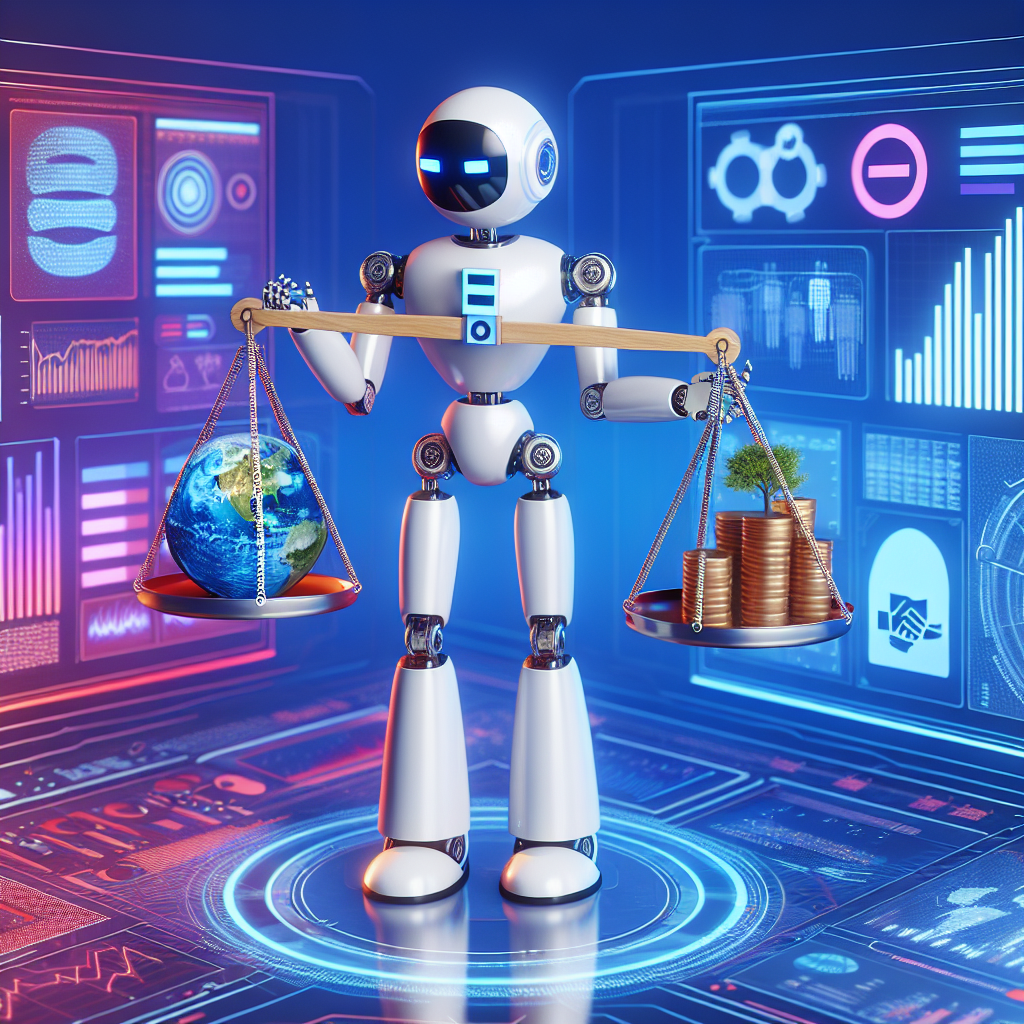In recent years, the use of artificial intelligence (AI) in disaster preparedness and response has become increasingly prevalent. From predicting natural disasters to coordinating relief efforts, AI has the potential to greatly improve the way we respond to emergencies. However, as with any technology, there are ethical implications that must be considered when integrating AI into disaster preparedness. In this article, we will explore the concept of ethical AI in disaster preparedness, specifically focusing on ensuring fairness and equity in AI systems.
What is Ethical AI in Disaster Preparedness?
Ethical AI in disaster preparedness refers to the use of artificial intelligence in a way that upholds ethical principles and values, particularly in relation to fairness and equity. This means ensuring that AI systems are designed and implemented in a way that does not discriminate against any individuals or groups, and that they prioritize the well-being of all individuals affected by disasters.
One of the key goals of ethical AI in disaster preparedness is to ensure that AI systems do not perpetuate or exacerbate existing inequalities. For example, if an AI system is used to allocate resources during a disaster, it must do so in a way that is fair and equitable, taking into account factors such as socio-economic status, race, and gender.
Why is Ethical AI Important in Disaster Preparedness?
Ethical AI is important in disaster preparedness for a number of reasons. Firstly, AI systems have the potential to significantly impact the lives of individuals affected by disasters, and it is crucial that these systems are designed and implemented in a way that prioritizes fairness and equity.
Secondly, disasters often disproportionately affect marginalized and vulnerable communities, and AI systems must be designed with these communities in mind. For example, if an AI system is used to predict the impact of a natural disaster, it must take into account the unique vulnerabilities of certain populations, such as individuals with disabilities or those living in poverty.
Finally, ethical AI in disaster preparedness is important because it helps to build trust and confidence in AI systems. If individuals believe that AI systems are being used in a fair and ethical manner, they are more likely to trust the recommendations and decisions made by these systems.
How can Fairness and Equity be Ensured in AI Systems?
Ensuring fairness and equity in AI systems is a complex and multifaceted process that requires careful consideration and planning. There are a number of strategies that can be used to promote fairness and equity in AI systems, including:
1. Data Bias Mitigation: One of the key challenges in AI systems is the presence of bias in training data. To ensure fairness and equity, it is important to carefully evaluate and mitigate any biases present in the data used to train AI systems. This can be done through techniques such as data augmentation, bias detection, and algorithmic transparency.
2. Diversity and Inclusivity: Another important aspect of ensuring fairness and equity in AI systems is to ensure that diverse perspectives and voices are represented in the design and implementation of these systems. This can help to minimize the risk of bias and discrimination, and ensure that AI systems are designed with the needs of all individuals in mind.
3. Transparency and Accountability: Transparency and accountability are key principles in ensuring fairness and equity in AI systems. It is important that the decision-making processes of AI systems are transparent and understandable, and that there are mechanisms in place to hold these systems accountable for their decisions.
4. Ethical Guidelines and Standards: Developing and adhering to ethical guidelines and standards can help to ensure that AI systems are designed and implemented in a way that upholds ethical principles. Organizations such as the IEEE and the Partnership on AI have developed guidelines and standards for ethical AI, which can serve as a useful framework for ensuring fairness and equity in AI systems.
FAQs:
Q: How can AI be used in disaster preparedness?
A: AI can be used in disaster preparedness in a number of ways, including predicting natural disasters, assessing damage after a disaster, coordinating relief efforts, and analyzing social media data to identify individuals in need of assistance.
Q: What are some ethical considerations when using AI in disaster preparedness?
A: Some ethical considerations when using AI in disaster preparedness include ensuring fairness and equity in AI systems, mitigating data bias, promoting diversity and inclusivity, and ensuring transparency and accountability in decision-making processes.
Q: How can bias in AI systems be mitigated?
A: Bias in AI systems can be mitigated through techniques such as data augmentation, bias detection, algorithmic transparency, and diversity and inclusivity in the design and implementation of these systems.
Q: What are some examples of AI being used in disaster preparedness?
A: Some examples of AI being used in disaster preparedness include the use of predictive analytics to forecast natural disasters, the use of drones to assess damage after a disaster, and the use of AI-powered chatbots to coordinate relief efforts.
In conclusion, ethical AI in disaster preparedness is essential for ensuring fairness and equity in the use of artificial intelligence in emergency situations. By taking into account ethical considerations such as bias mitigation, diversity and inclusivity, transparency and accountability, and adherence to ethical guidelines and standards, we can ensure that AI systems are designed and implemented in a way that prioritizes the well-being of all individuals affected by disasters.

